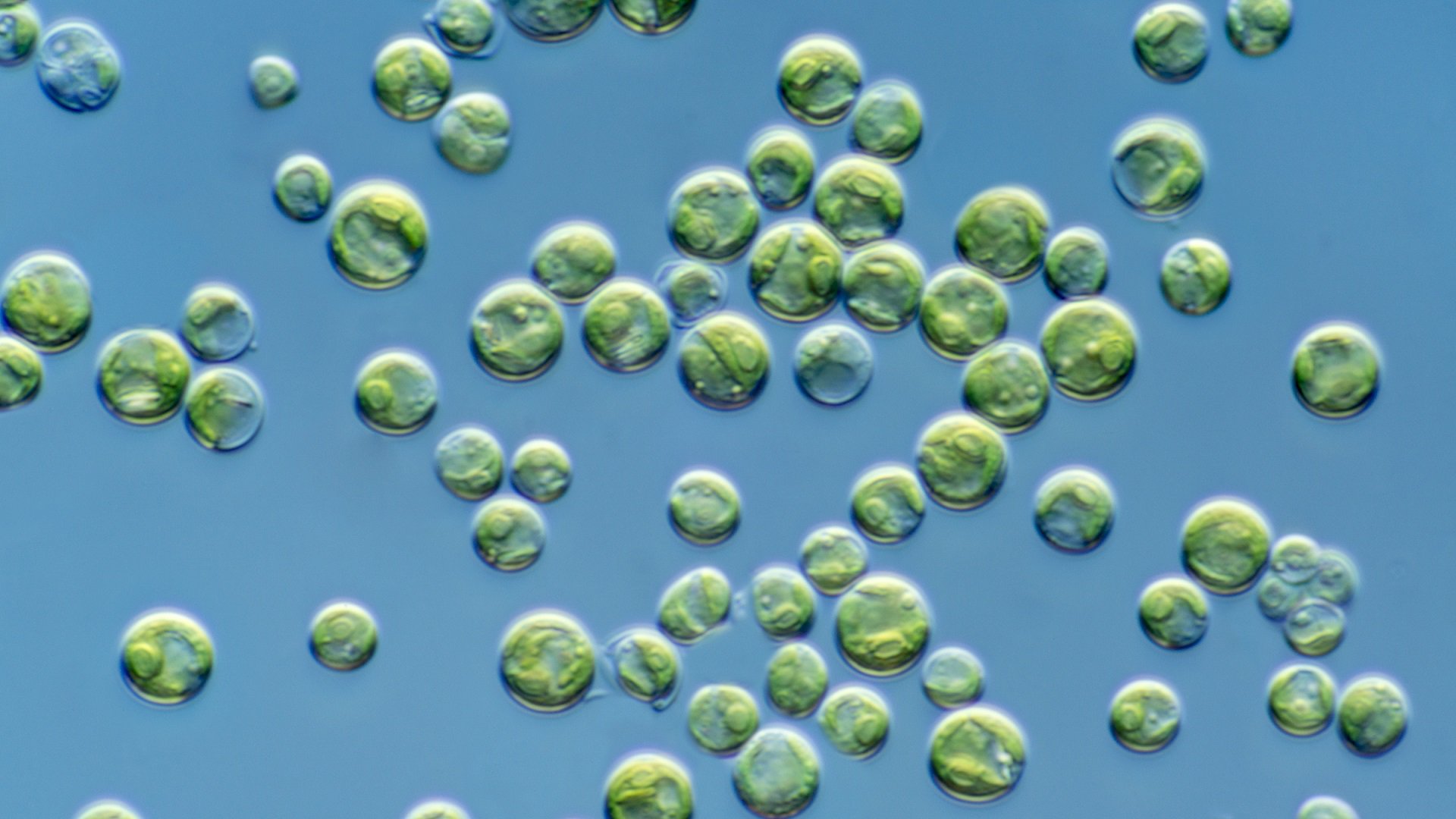Chlorella vulgaris is a single-celled algae species. The name Chlorella comes from a combination of the Greek ‘chloros’, which means green, with the Latin conjugation ‘ella’, which means small. Vulgaris means common or not special. So by name, Chlorella vulgaris is just a common little green cell. However, this does not fit its great potential.
Chlorella vulgaris is a single-celled algae species. The name Chlorella comes from a combination of the Greek ‘chloros’, which means green, with the Latin conjugation ‘ella’, which means small. Vulgaris means common or not special. So by name, Chlorella vulgaris is just a common little green cell. However, this does not fit its great potential.
EUREKAryote
Chlorella vulgaris are green, single-celled microalgae. The green colour comes from the chloroplasts that the algae use to make food through photosynthesis. This algae was discovered in 1890. It was the first algae where a cell nucleus was recognised. That was important news at the time because it showed that algae are eukaryotes.
The green fuel
Besides for food, C. vulgaris is a promising biofuel source. It is regarded as a possible substitute for crops that are currently used for this, such as soy or corn. The advantages of C. vulgaris are that the cultivation is not at the expense of agricultural land and that the algae have up to 20 times more oils that are needed for making biodiesel than other sources. In addition, it contains a lot of starch from which bioethanol is made.
The green food source of the future?
C. vulgaris has a high protein and nutrient content, and is cultivated for that reason. In the late 1940s, Chlorella was seen as the solution to the growing global food shortage. During that period a lot of research was done into the possibilities of using this algae as food. However, the food shortage was subsequently solved (for now) by a major efficiency improvement in agriculture. This made C. vulgaris a lot less popular.
In the past decade, however, interest in Chlorella has grown again. The worldwide demand for healthy food is increasing along with the world’s population. There is a need for nutrient-rich, easy-to-produce solutions. Chlorella meets all these requirements. It is even considered a superfood. That's because this microbe is a good source of protein, fat, carbohydrates, fibre, chlorophyll, minerals and vitamins. Among other things, it is rich in vitamins D and B12, which are not found in plant based foods. In addition, Chlorella contains much more folate and iron than other plant foods. Research has shown that Chlorella has a range of health-promoting properties when used as a dietary supplement by humans and other mammals. It is good for the immune system, it is antioxidant and it is good against diabetes. Finally, it is good for cholesterol, blood pressure and blood glucose levels. So it’s the green food source of the future!

